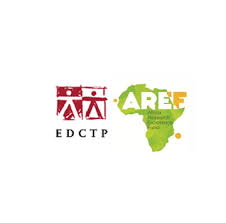In the ever-evolving landscape of collegiate sports, one phenomenon stands out as a testament to inclusivity, skill, and opportunity – flag football scholarships. What was once a casual pastime has transformed into a recognized and respected sport, paving the way for student-athletes to pursue higher education while showcasing their talents on the field.
Flag Football Scholarships
Flag football, with its fast-paced action and emphasis on strategic play, has become a beacon of change in the realm of athletic scholarships. As we navigate this exploration, we\’ll unravel the journey of flag football from a recreational pursuit to a pathway for educational advancement, examining how it has reshaped the opportunities available to a diverse array of student-athletes.
The Rise of Flag Football Scholarships
Traditionally, when referring to football scholarships, the focus was on the full-contact version of the sport. This version of football is characterized by its physically demanding nature, where players engage in intense physical contact as an integral part of the game. Athletes pursuing these scholarships needed to demonstrate not only skill and prowess but also the ability to navigate the rigorous physical challenges associated with traditional football.
However, a notable shift has occurred with the emergence of flag football, which has gained widespread recognition and respect as a distinct sport. Flag football represents a modified version of the traditional game, replacing physical tackling with the removal of flags from players\’ belts to signify a \”tackle.\” This alteration has not only brought a new dimension to the game but has also opened up fresh opportunities for student-athletes in pursuit of financial support for their education.
In response to the growing popularity and legitimacy of flag football, many colleges and universities across the United States have incorporated flag football scholarships into their athletic programs. This shift signifies a broader acknowledgment of the sport\’s inclusive nature, appealing to individuals of all genders. Unlike the traditional format, flag football is a coed sport, emphasizing collaboration, strategic thinking, and agility rather than sheer physicality. This altered emphasis has contributed significantly to flag football\’s reputation as a sport that not only provides entertainment but also fosters the development of essential life skills.
In essence, the evolution from traditional football scholarships to the inclusion of flag football scholarships represents a paradigm shift in the collegiate sports landscape. It reflects a recognition of the diverse talents and preferences of student-athletes, offering opportunities to those who may thrive in a less physically demanding yet equally competitive and strategic sporting environment. The transition to flag football scholarships underscores a commitment to inclusivity, skill development, and a broader understanding of what constitutes a valuable and enriching athletic experience for college-bound individuals
Opportunities for Student-Athletes
Flag football scholarships represent more than just an avenue for student-athletes to showcase their skills on the field; they serve as a transformative gateway to higher education and personal development. These scholarships offer a unique opportunity for passionate athletes to pursue their love for the sport while simultaneously earning a college degree.
Financially, the impact of flag football scholarships is profound. These scholarships cover a spectrum of expenses that would otherwise pose significant challenges for many students and their families. Tuition, room and board, and textbooks – essential components of a college education – are alleviated through the support provided by these scholarships. This financial relief removes a substantial burden from talented athletes who might have otherwise found it difficult, if not impossible, to afford the costs associated with pursuing higher education.
The ripple effect of these scholarships extends well beyond the financial realm. Participation in college flag football programs fosters a holistic and enriching experience for student-athletes. Beyond the touchdowns and victories, individuals involved in these programs develop invaluable life skills. Leadership qualities are honed as athletes take on responsibilities both on and off the field. Learning to manage time effectively becomes second nature, balancing the demands of academics and athletics. A strong work ethic is cultivated through the dedication required to excel in both areas.
These skills, acquired through the multifaceted experience of participating in college flag football programs, transcend the boundaries of sports and find applications in academic and professional settings. The discipline, teamwork, and resilience developed on the field become assets that contribute to a well-rounded and capable individual.
In essence, flag football scholarships serve as a catalyst for academic and personal growth. They not only make higher education accessible to talented athletes who may have faced financial barriers but also nurture a generation of individuals equipped with the skills and qualities that transcend the playing field, preparing them for success in various aspects of life. The transformative power of these scholarships lies not just in providing access to education but in shaping well-rounded, resilient, and skilled individuals who are poised to make meaningful contributions to society.
Impact on Women\’s Sports
Flag football scholarships stand out not only for their financial support of student-athletes but also for their remarkable impact on promoting gender equality in the realm of sports. This is largely attributed to the fact that flag football is a coed sport, welcoming both male and female participants to compete on an equal playing field. This inclusive approach has become a catalyst for breaking down traditional gender barriers within the athletic community.
The significance of flag football scholarships in promoting gender equality cannot be overstated. By design, these scholarships are accessible to athletes of all genders, fostering an environment where opportunities for financial support and recognition are not constrained by gender norms. This marks a departure from historical trends in sports where certain disciplines were often dominated by one gender, reinforcing stereotypes and limiting opportunities for female athletes.
The inclusivity inherent in flag football scholarships plays a pivotal role in dismantling preconceived notions about the capabilities of female athletes. Women participating in flag football have the chance not only to compete at a high level but also to be acknowledged and rewarded for their achievements on an equal footing with their male counterparts. This shift in perspective challenges long-standing biases and contributes to a more equitable and diverse athletic landscape.
Moreover, the visibility of female athletes excelling in a coed sport like flag football serves as a powerful statement in favor of gender equality. It sends a message that athleticism and skill are not confined by gender, encouraging a broader acceptance of women in sports and paving the way for increased representation at all levels.
In essence, flag football scholarships play a pivotal role in promoting a more inclusive and egalitarian vision of sports. By embracing the coed nature of flag football, these scholarships contribute to breaking down traditional gender barriers, providing female athletes with equal opportunities for recognition, development, and success. The impact extends beyond the field, inspiring a cultural shift that values and celebrates athletic achievement regardless of gender, ultimately contributing to a more diverse and equitable future for sports.
The Future of Flag Football Scholarships
The rising popularity of flag football is poised to have a significant impact on the landscape of collegiate sports, as an increasing number of colleges and universities are expected to acknowledge the sport\’s potential and expand their scholarship offerings. This growth stands to benefit not only aspiring athletes but also contributes to the broader development and recognition of flag football as a legitimate and competitive sport.
As flag football gains traction and establishes itself as a widely recognized and respected sport, more educational institutions are likely to take notice of its appeal. The sport\’s unique combination of strategy, teamwork, and inclusivity, coupled with its more accessible and less physically demanding nature compared to traditional football, makes it an attractive option for both participants and spectators. This growing popularity is expected to prompt colleges and universities to invest in and expand their flag football programs.
The expansion of scholarship offerings in flag football brings about several positive outcomes. Firstly, it opens up new opportunities for student-athletes who are passionate about the sport. As more institutions recognize the value of flag football, they are likely to allocate resources to support athletes through scholarships, providing financial assistance that can make pursuing higher education a reality for individuals who may not have had such opportunities otherwise.
Secondly, the increased availability of flag football scholarships contributes to the overall development and legitimacy of the sport. When educational institutions invest in scholarship programs for a particular sport, it signifies a commitment to the growth and recognition of that sport within the collegiate sports community. This, in turn, elevates the status of flag football as a competitive and respected discipline, potentially attracting more talent and fostering a thriving and competitive environment.
As the popularity of flag football continues to soar, it is anticipated that more colleges and universities will embrace the sport, recognizing its potential and expanding their scholarship offerings. This expansion is a positive development for both aspiring student-athletes and the sport itself, as it contributes to the ongoing evolution and recognition of flag football as a legitimate and competitive option within the collegiate sports landscape.
Conclusion
In the tapestry of collegiate sports, flag football scholarships have emerged as a vibrant thread, weaving together athleticism, education, and inclusivity. The impact of these scholarships extends far beyond the confines of the field, shaping the lives of student-athletes who find not only financial support but also a platform to hone their skills and character.
As we look to the future, the trajectory of flag football scholarships is undeniably upward, promising increased recognition, expanded opportunities, and a legacy of breaking down barriers in the pursuit of athletic and academic excellence. The story of flag football scholarships is not just one of touchdowns and victories; it is a narrative of empowerment, equality, and the boundless potential within the realm of collegiate athletics.
Frequently Asked Questions
1. Are flag football scholarships only available for students pursuing a career in professional sports?
No, flag football scholarships are not exclusively reserved for those aspiring to play professionally. Colleges and universities offer these scholarships to student-athletes who demonstrate skill, dedication, and a passion for flag football, regardless of their future career aspirations. These scholarships are designed to support individuals seeking higher education while actively participating in and contributing to the sport.
2. Can female athletes also apply for flag football scholarships, or are they limited to male participants?
Flag football scholarships are inclusive and open to athletes of all genders. As flag football is a coed sport, colleges and universities recognize and appreciate the talents of both male and female athletes. These scholarships play a significant role in promoting gender equality in sports, providing opportunities for female athletes to excel and receive recognition on an equal footing with their male counterparts.
3. How can prospective student-athletes find information about colleges offering flag football scholarships?
To explore flag football scholarship opportunities, prospective student-athletes can start by researching colleges and universities with established flag football programs. The athletic department websites of educational institutions often provide detailed information about available scholarships, eligibility criteria, and the application process. Additionally, reaching out to coaches, attending recruitment events, and participating in flag football competitions may help aspiring athletes connect with scholarship opportunities and gain insights into the collegiate flag football landscape.






